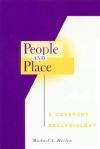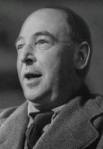So, I’ve seen this article on “23 Things To Do Instead of Getting Engaged Before You’re 23” get posted a bit lately. I read it. I get the appeal. I did want to offer a few quick thoughts from a dude who got engaged at well, 24, but was apparently so dumb he knew whom he was going to marry at 20.
Before I do that, though, a couple of quick caveats: I just watched two of my best friends get married last year right at about 30. Many of my other friends will. This is not a judgment on them, and there is certainly nothing inherently immoral or wrong about it. I am not saying that if you’re 23 and single, there’s something wrong with you. In fact, as a Christian, I think you can live a whole, healthy life without ever getting married. Singleness (and celibacy) were first elevated to an honorable lifestyle in Western culture through the spread of Christianity.
What I want to do is just push back on a few mistakes I’m seeing here that are easy to make:
1. Not everybody that gets engaged or married at a young age is doing it because they’re vulnerable, desperate, scared, or pathetically lonely. It’s condescending and arrogant of this young woman to suggest that. It’s turning the contingencies of her own situation into the virtue that we should all aspire to. In other words, “I’m young, single, lonely but not ready for a marriage so I’m going to tell myself that you must not be either, and you’re pretty much dumb for getting married young, which makes me super wise and self-knowing.” Honestly, I get that a lot of people our age feel the unfair pressure of people imposing the values of another age and time, the example of our parents, and so forth, on their shoulders. The problem is, this article is essentially making the same mistake in reverse.
2. “The divorce rate among young couples is high.” Yes, that’s true. But if you look at the sociology on it, this is not mostly talking about a couple of kids out of college who’ve decided to start a life together. A lot of that rate is affected by low-income, low-education couples, with unplanned pregnancies, marrying out of pressure. Actually, according to some of the latest sociological research, 22-27 is actually about the perfect age for getting engaged and married in terms of happiness and marital longevity. I would just say, beware of misleading sociology, or quickly assigning explanations to complex phenomena.
3. “I need to find out who I am before I can build a life with someone.” Yes, and no. One of the reasons that young couples divorce is due to the misleading, romantic, idealistic expectations they have about marriage. I would also point out there are similarly misleading myths about singleness and identity held by these very same people. See, there is this romantic myth that at some point in the future we reach this stable self, this pinnacle of self-knowledge and self-awareness that might be expanded on, but will essentially stay the same for the foreseeable future. The reality is that you will change, grow, and develop over the whole of your life. While the person you are at 23 is not the person you will be at 27, what’s also true is that the person you will be at 27 is not the person you will be at 35, and so forth. You will always be changing and growing. As theologian Lewis Smedes has said, “My wife has been married to 4 different men in her life–and they’ve all been me.”
Yes, many 23-year olds are immature and in transition. Yes, a number of them need to develop a bit before covenanting themselves in the bond of marriage. I shudder at the thought of some 23-year olds I know getting married in a rush. At the same time, I just performed a marriage for a couple of 22-year olds this summer that I am absolutely ecstatic for. They are sane, solid, stable, and have embarked on a wonderful adventure: they get to find out who they are together. They can still do the vast majority of the 23 things on that list, and, honestly, the rest of them aren’t worth engaging.
Let me put it this way: I didn’t marry my wife because I knew exactly who I was, or entirely knew who she was. I married my wife because I knew enough about her that I wanted to see the woman she is going to become, and want to be there for it. What’s more, I want her to be there as I grow and develop. I know that I’m a better man because I have been “finding myself” alongside of her for the last few years instead of apart from her. Now, the catch is, in our case one of the reasons I wanted to be with McKenna is because I knew she wouldn’t want me to find myself in her, but would always point me to Jesus. Still, my marriage hasn’t gotten in the way, but it has helped me keep on the way.
Actually, to follow up, one of the big issues that can plague later marriages between two people who have been single during this crucial developmental period is that you get so settled in your ways, so calcified in “being yourself” apart from the person you’re looking to marry that you don’t have the emotional elasticity it takes to make a marriage work. When I married my wife, I didn’t have 30 years of single guy habits build up around the way I did things, or thought of myself that I had to kill in order for a marriage to a sane woman to put up with me (although, McKenna is still a saint for putting up with me.)
Thing is you never marry someone who is a “perfect fit.” You’re always going to have to make compromises, sacrifices, and grow in order to make this thing work. I am not saying that you can’t develop the character traits you need to make this work if you’re single in your twenties. What I am saying is that it’s not at all obvious that you ought to stay single longer in order to be ready for marriage. For some people it might be a good idea. For some of us, getting married is what has to happen.
Soli Deo Gloria
Addendum: I wrote this in a bit of a rush, but here are two resources to check out:
1. The Meaning of Marriage by Timothy Keller – This is my go-to book for understanding the purpose and practice of marriage. It’s simply beautiful.
2. Premarital Sex In America by Mark Regnerus and Jeremy Uecker – This study published by Oxford University press is where I’m getting my sociology. It’s exhaustive and well-sourced.

















